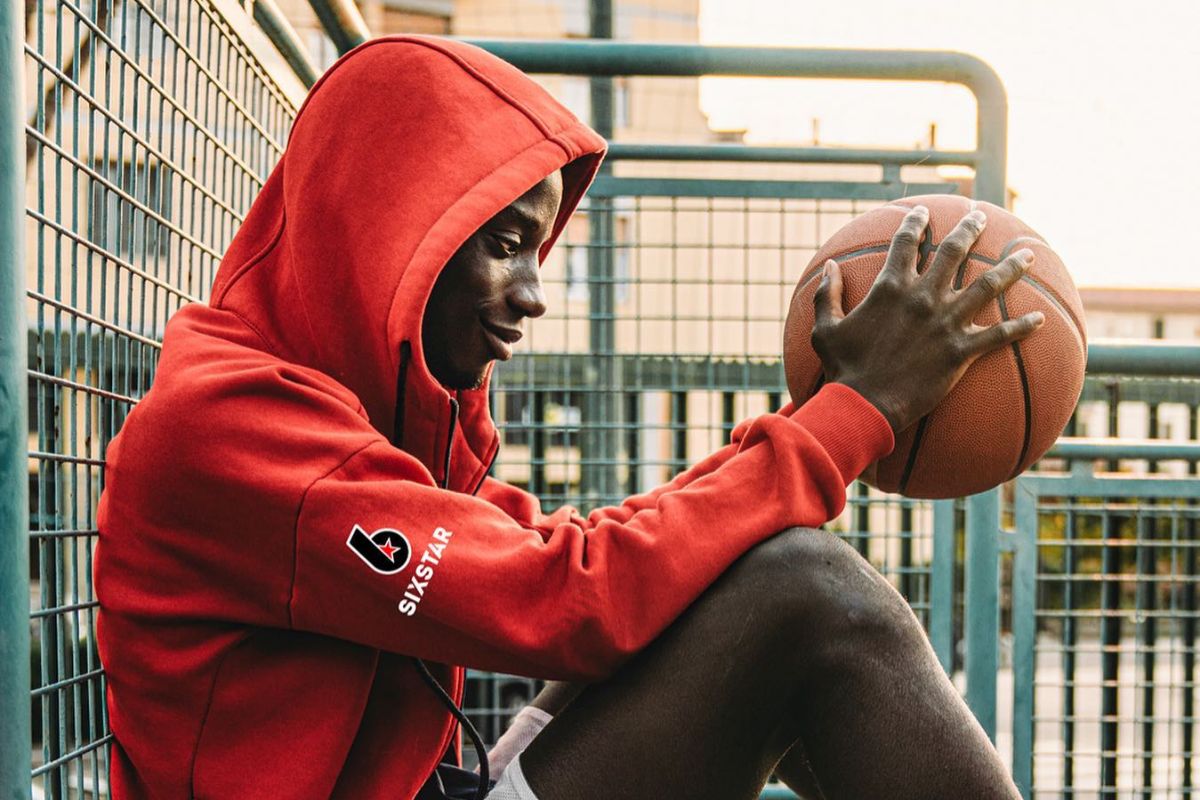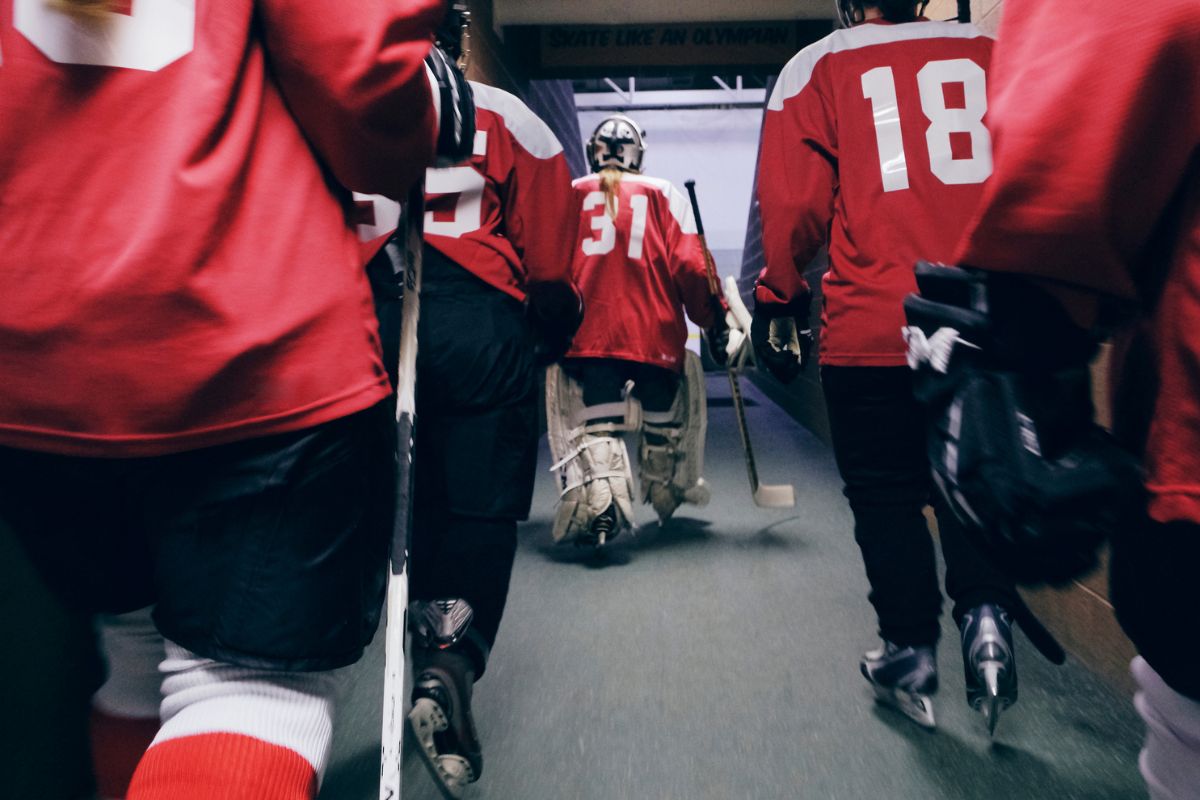Basketball isn't just a game of tossing a ball into a hoop. It is an intense sport where you have to constantly move, jump, sprint, and make quick decisions. The sport is particularly tough on the body. And because of that, you must ensure you're eating foods that give you energy, help your muscles recover, and keep you sharp.
As an athlete, you shouldn't fuel your body with junk if you want to be the best basketball player you can be. Eating the right food and having a good diet plan can make a massive difference in how you perform, whether that's making faster breaks or shooting those three-pointers.
Nutrition is an important aspect of sports and yet widely overlooked. When it comes to strenuous sports like basketball, a player should prioritize their diet as much as their skill training because without that the glass will always be half full.
In this blog, you’ll discover the right basketball player diet that you need to take to stay on top of every game.
Calorie Intake for Basketball Players
Basketball requires a lot of energy due to its constant physical movement. The amount of calories a player should consume varies based on factors like their size, training intensity, and game duration.
For example, a young high school girl practicing for an hour might need around 2,000 calories daily, while a tall professional player might require between 6,000 to 7,000 calories. Competitive male players working out over 90 minutes daily should consume more than 23 calories for each pound they weigh.
Likewise, female athletes training for the same duration should target between 20 to 23 calories per pound of their weight daily.
Nutrition Guide for Basketball Players
For basketball players, a well-balanced diet, rich in carbohydrates, proteins, fats, vitamins, and minerals, is paramount. This not only fuels performance but also supports recovery and physical health.
1. Carbohydrates
As a basketball player, your body will often turn to carbs for the quick energy required for sprints, jumps, and rapid direction changes. Consuming adequate carbohydrates can enhance your performance and endurance on the court. 5-7 grams of carbs per kilogram of body weight is generally recommended for endurance athletes. Munch on Foods rich in carbs like Whole grains, fruits, legumes, and starchy vegetables.
2. Proteins
Every time you train or play, the muscles experience wear and tear. Proteins play a crucial role in repairing these muscles, helping recovery, building new muscle tissue, and maintaining existing muscle mass. 1.2-2.0 grams of protein per kilogram of body weight daily should be a definite inclusion in your current diet.
Lean meats like chicken, turkey, lean beef, fish, dairy, eggs, legumes, and tofu are your best options to get sufficient protein. If you’re someone who practices a vegan diet or just refrains from consuming meats and dairy then there are many other options you can choose from such as plant-based protein and supplements that work on par with whole foods and provide complete nutrition.
3. Fats
While carbohydrates provide quick energy, fats act as a source of sustained energy, especially during prolonged matches. Fats also play a significant role in maintaining hormonal balance, which can influence muscle growth and recovery. Healthy fat sources to consider are avocados, nuts, seeds, olive oil, and fatty fish like salmon. Around 20-35% of total daily caloric intake should be fats to be active throughout the game.
5. Vitamins
Certain vitamins are integral for energy production and muscle function. B vitamins, for example, help in converting the food you eat into energy. Vitamin D is essential for bone health. Antioxidants, found in a variety of fruits and vegetables, help combat oxidative stress that occurs during intense running and training sessions. Regularly consume foods like spinach, oranges, bell peppers, and lean meats to ensure you're meeting your vitamin needs.
5. Minerals
As a Basketball player, you should know the essential minerals that play key roles in muscle function and energy production like calcium for muscle contraction. Magnesium helps in muscle relaxation.
Potassium helps in maintaining proper muscle function and preventing cramps. Iron is crucial for oxygen transportation. All these minerals can be sourced from Foods like a diverse range of fruits, vegetables, nuts, seeds, meats, and dairy.
Pre-Game Meals and Snacks for Basketball Players
Basketball demands quick reflexes, explosive jumps, and sustained endurance. What you eat before you step onto the court can greatly impact your performance. Therefore, understanding your pre-game meals and snacks becomes necessary.
Shop and Save on Pre Workout Supplements
Pre-Game Meal
This should be consumed 3-4 hours before game time. It gives your body ample time to digest and convert the food into usable energy. This meal should be rich in carbohydrates to fill up your glycogen stores, moderate in proteins for muscle readiness, and low in fats and fiber to avoid any digestive discomfort. Some healthy and sustainable choices for a pre-game meal can be:
- Grilled chicken breast with quinoa and steamed vegetables
- Turkey and Avocado Wrap
- Tofu Stir-Fry (for vegetarian/vegan players)
- Fish and Sweet Potato
Pre-Game Snack
This should be taken about 30 minutes to an hour before the game. It acts as a quick energy boost just before you play, ensuring that your energy levels remain high from the moment you start. Some good Suggestions for Pre-game Snacks are:
- A banana with a small spoonful of almond butter
- A granola bar
- A small handful of mixed nuts like almonds, walnuts, and cashews
- A Slice of whole grain bread with mashed avocado spread
- Non-fat Greek yogurt with Fresh berries
Post-Game Recovery Nutrition For Basketball Players
Once the final whistle of your basketball match blows, your focus should shift immediately from performance to recovery because, like any other high-intensity sport, basketball also demands a lot from your energy reserves and puts a strain on your muscles.
1. Replenish your Glycogen Reserves
Glycogen is your body's primary storage form of carbohydrates found in the liver and muscles. During an intense basketball match or training session, these glycogen stores deplete. Replenishing them quickly ensures that your muscles have adequate energy for the next training session, game, or other activities. Here are some meal suggestions for that:
- Whole Grain Sandwich with lean meats and veggies.
- Whole grain pasta with cherry tomatoes, cucumbers, and a light vinaigrette.
- Brown rice with black or kidney beans, garnished with some fresh cilantro.
2. Protein Intake for Muscle Recovery
You may have experienced microscopic tears in your muscles during play. While this is a natural part of training and playing hard, protein is crucial in repairing these tears, helping to grow stronger muscles and prevent injuries. Consuming protein soon after the game can kickstart the recovery process. Some meal suggestions are:
- Grilled Chicken Salad with a light dressing.
- Quinoa and Tofu Bowl with an array of colorful veggies.
- Protein Smoothie
3. Anti-inflammatory Foods to Help Recovery
Post-game inflammation can lead to muscle soreness and delayed recovery. Incorporating anti-inflammatory foods can not only expedite muscle recovery but also help relieve muscle pain and reduce swelling. Some best meals to get the process going are:
- Grilled salmon served with roasted asparagus.
- Turmeric and Ginger Smoothie
- Cherry Almond Oatmeal
Hydration Needs of a Basketball Player
While shooting hoops and executing strategies are the vanguard of every basketball player, understanding the crucial role of hydration and actively managing it can upgrade your all-around performance as Proper hydration helps maintain peak physical performance.
1. Before the Game
Drink about 16-20 ounces of water 2-3 hours before starting. Consume another 8-10 ounces 20-30 minutes before tip-off or the start of warm-ups.
2. During the Game
Seek to drink 7-10 ounces of water every 10-20 minutes. Increase the rate if the intensity is high or if the game is played in a hot and humid environment. In long training sessions or games that stretch over an hour, consider an isotonic sports drink that can help replace lost electrolytes.
3. After the Game
Post-game or practice, it's necessary to replenish the fluids lost. A general rule of thumb is to drink 20-24 ounces of water for every pound of weight lost during the match. To get an idea of how much fluid was lost, you can weigh yourself before and after the game or practice.
4. Daily Hydration
Outside of practice, a male athlete should drink around 3 liters per day, and a female athlete about 2.2 liters per day from all beverages and foods.
5. Prioritize Electrolytes
Electrolytes, such as sodium, potassium, and magnesium are important for muscle function and maintaining fluid balance. As you sweat, you not only lose water but also these crucial minerals. Electrolytes assist in transmitting electrical impulses between nerve cells. An imbalance can result in muscle weakness, twitching, or even severe cramps.
While water is required, hydration isn't just about the water. Consuming electrolytes helps the body retain the necessary fluids and assists in proper fluid distribution throughout the body.
Supplements for Basketball Players
In the demanding world of basketball, nutritional supplements are often useful when it comes to potentially boosting performance, aiding recovery, and providing optimal health.
1. Creatine
Creatine is one of the most researched supplements in sports nutrition. It aids in the production of ATP, which provides quick bursts of energy. This can be particularly beneficial in basketball which involves short, intense bouts of activity. You might experience improved performance during high-intensity, short-duration activities, like sprinting and jumping.
2. BCAAs (Branched-Chain Amino Acids)
Comprising three essential amino acids called leucine, isoleucine, and valine, BCAAs play a role in muscle protein synthesis and can help reduce muscle soreness post-workout. You can take them before, during, or after matches to help in muscle recovery and reduce fatigue.
3. Omega-3s
Omega-3 fatty acids, commonly found in fish oil, have anti-inflammatory properties which can help in recovery while also being vital for cognitive functions and decision-making in sports. Regular supplementation can help reduce inflammation, potentially speeding up recovery post-game or practice and ensuring cognitive health.
Wrapping it Up
Basketball players need to be meticulous about their nutrition and hydration for good performance and recovery. From pre-game meals to post-game nutrition, every dietary choice has a role in your on-court effectiveness. While supplements can enhance your regimen, they should be consumed with caution, provided they complement a balanced diet rather than replace it.
Proper education, research, and consultation with professionals are prominent so that you can understand and respect your body, its needs, and the demands of the sport. A balance between your nutrition and skill can lead you as a basketball to success on the court with a healthier and more upheld athletic career.
Buy Sports Nutrition & Supplements from SixStar
Read Our Top Read Blogs:
- When to Take to Take BCAA? Maximizing Your Workouts, Enhancing Your Health
- Diet For Soccer Players: What, Why & When?
- Pre-Workout for Beginners – All You Need to Know?
- Creatine Before or After a Workout - What is Ideal?
- How Long Does It Take for Creatine to Work?


